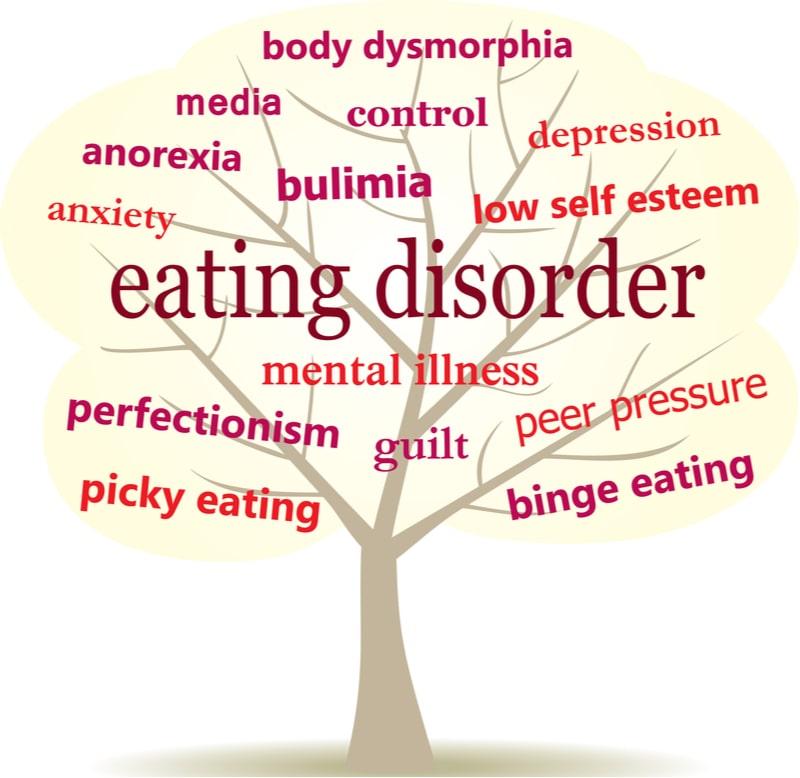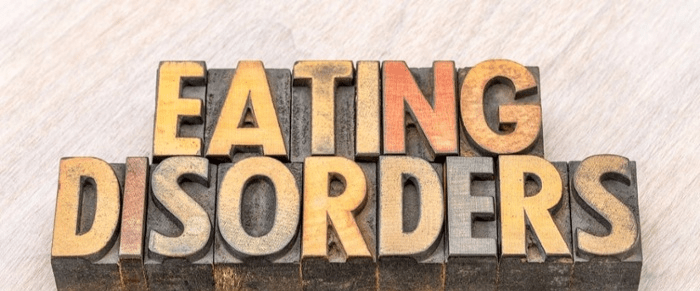Did you know that March is National Nutrition Month?
Though nutrition is an important treatment aspect for many different organizations we serve here at Sigmund, it is perhaps most important for the eating disorder treatment facilities.
So, when we talk about nutrition, our thoughts go right to this community.
Eating disorders are complex. In way too simple terms, they can be described as a clinically unhealthy relationship with food.
However, this description does not properly encapsulate the emotional, mental, and physical complexities that contribute to each unique struggle with an eating disorder.
The available treatment for eating disorders did not always capture those complexities either. For a long time, eating disorder patients were placed into substance abuse recovery systems or medical hospitals.
However, this is not your typical addiction, nor is it a purely physiological condition with standard medical solutions.
Fortunately, a true understanding and appreciation of this fact has emerged in the healthcare industry in recent years.
Some providers have realized this patient population requires their own specialized treatment. Now there are organizations all over the world that take a comprehensive and targeted approach to eating disorder treatment.
We are so encouraged to see that these organizations strive to give their patients the individualized care they deserve.
To celebrate this month of nutrition, we thought we would explore what makes eating disorder treatment so complex, and why it is so important that we understand how to properly treat this condition.
Eating Disorders: A Quick Overview
Eating disorders are a group of similar conditions that involve extreme food and weight issues. Though they share this common denominator, each eating disorder is a unique condition with a specific set of symptoms.
Find information on every eating disorder here.
A few more important facts about eating disorders:
- Anyone can develop an eating disorder, no matter age or gender
- Eating disorders are more common in females, though there is a growing awareness of the prevalence of eating disorders in males
- Eating disorders most commonly develop during adolescence, but the condition can begin during childhood or well into adulthood
- Eating disorders can lead to a variety of very serious health complications
- Eating disorders are “bio-psycho-social diseases” – genetic, biological, environmental, and sociocultural forces are all contributing factors
Eating Disorders are More Than an Addiction
Traditionally, the healthcare industry has treated eating disorders as an addiction.
On the surface, it may seem like addiction treatment facilities would be able to provide quality care for those suffering from an eating disorder. Both conditions are, “…behavioral disorders involving compulsive actions.” In fact, they are commonly co-occurring disorders.
However, an addiction treatment approach is centered around abstaining from a harmful substance. For addiction, the predominant treatment method is abstinence. To overcome alcohol abuse, an individual must learn how to eliminate alcohol consumption from their life.
As for eating disorders, we all need food to live.
We simply cannot abstain from eating. As a result, eating disorder treatment is much more about achieving a healthier relationship with food.
 Behavioral Health Factors
Behavioral Health Factors
Those struggling with addiction largely rely on a substance as a way to escape.
Whether they are attempting to escape stress or sadness or reality, the underlying motivation is to avoid or forget about a particular personal struggle.
Though an eating disorder can also be a means of escape, it is often more complicated than that. This complex nature is why specialized treatment facilities are just now popping up. Scientists are still learning about the causes of eating disorders.
The current consensus is that eating disorders are a physical response to overwhelming feelings and difficult emotions. Essentially, a person tries to deal with those mental and/or emotional hardships by controlling food.
Put another way, behavioral health factors are the driving force behind eating disorders, which then manifest in physical ways.
Control is the operative word here, and a point of distinction from an addiction.
Someone struggling with addiction may turn to their substance for the opposite – a hiatus in authority or burden. A person that develops an eating disorder uses food to gain agency and control in an environment where they lack those things.
Taking Control
Everyone needs some kind of control to feel safe.
In an environment where we lack control, where we feel scared or vulnerable, the natural thing to do is find something to grab on to.
In the case of those suffering from eating disorders, they have grabbed, and held on to food.
Eating disorders often develop when some aspect of a person’s external world has caused them to perpetually experience a lack of control over their environment.
No matter the external force, a person can have authority over what they eat. When they eat. How much they eat. Whether to under-eat or overeat.
That authority over food can become a beacon of control in an environment that is damaging them, or changing or deteriorating around them.
Take someone in an abusive relationship, for example.
Maybe their partner is extremely controlling. Or perhaps they were assaulted multiple times and were unable to protect themselves.
Their diet may be the one thing in that environment they are not at the mercy of. Their command over food may be their saving grace in that specific situation.

Controlling food can also become a source of power or self-worth.
Consider the all too common scenario of a young girl who is constantly exposed to unrealistic beauty standards. She may not be able to control the world’s beauty standards or the body types that are glamorized in the media. What she can control is her diet.
If she feels that she is not fit or skinny enough, she can purge after eating or stop eating altogether.
Ignoring the health complications for a moment, these can be quite effective ways to conform to the “ideal” body type. A lack or total elimination of caloric intake will simply make you lose weight.
As a result, the girl who considered herself undesirable by external standards has found a way to transform her body through an internal, personal volition.
And, in many cases, other people do not expect or even consider the girl is developing an eating disorder. Instead, she is praised for “improving” herself. Her new figure becomes a newfound source of value and self-esteem, making it all the more difficult to break away from an eating disorder.
Unfortunately, this coping mechanism is an extremely unhealthy one. Eating disorders have the highest mortality rate of any psychiatric illness.
Therein lies the complexity of eating disorders. It’s a strong emotional and mental reliance on a harmful physical behavior.
Optimal Eating Disorder Treatment
Treating eating disorders is equally complex. Providers are tasked with treating very serious medical concerns and their underlying behavioral causes.
Optimal treatment thus requires a harmony of medical and behavioral approaches.
A comprehensive approach should include:
- Behavioral counseling that addresses the relevant psychological, biological, environmental and sociocultural forces that contribute to the disorder
- Nutritional counseling to educate patients on healthy eating habits and rehabilitate their relationship with food
- Medical attention and monitoring for relevant health consequences
Making this layered task even more difficult is the fact that ideal treatment is a little different for each individual case. Even within the same type of eating disorder, two people may find success with different combinations or ratios of behavioral and medical care.
As you can imagine, treating an eating disorder with only one side of that coin is vastly insufficient.
Picture a medical hospital that is only prepared or educated to handle the physical aspects of an eating disorder. Often, the immediate physical problem is a lack of nutrients. Therefore, a medical hospital in the past may have resorted to force-feeding eating disorder patients through tubes. Clearly, that is disregarding the psychological roots of the issue.
On the other hand, purely behavioral treatment facilities were only equipped to address the psychological factors of the condition. They lacked the expertise and certifications needed to perform important care such as monitoring vital signs or ordering laboratory tests.
Luckily, eating disorder treatment organizations can now offer the necessary comprehensive care that their patients require and deserve.
Treating Eating Disorders w/ Dynamic Software
The emergence of eating disorder treatment facilities is still a relatively new development. As the scientific understanding of eating disorders continues to evolve, we should expect to see the treatment evolve with it.
However, the optimal treatment we discussed has proven to be very effective care for eating disorder patients.
In fact, we have seen it first hand.
Sigmund has been lucky enough to help multiple organizations deliver specialized eating disorder treatment to their patients. AURA, our enterprise EHR software, is highly functional and configurable. As a company that has served the mental health and addiction treatment communities for the last 20 years, our technology is uniquely primed to accommodate the comprehensive and specialized needs of an eating disorder treatment facility.
If you are a provider that is looking for ways to better treat eating disorder patients, or an EHR that is better suited for your needs, you may want to check out what AURA has to offer. Feel free to reach out to one of our knowledgable professionals today!



